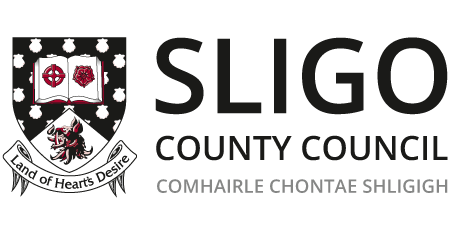Complaints Policy
Introduction
Sligo County Council is committed to dealing effectively with any complaints you as the customer may have with our service.
If the Council get something wrong, we will apologise and where possible, will try to put things right. We also aim to learn from our mistakes and use the information we gain to improve our services.
When to use this Policy
When you complain to us, we will usually respond in the manner we explain below. Sometimes, you might be concerned about matters that are not decided by Sligo County Council. If this is the case, we will then advise you how to make your concerns known.
Informal Resolution
If possible, we believe it is best to deal with things as soon as possible and in the easiest and most direct way. If you have a complaint, raise it with the staff member you are dealing with. He/she will try to resolve the matter for you there and then. However, they may need time to look into it. He/she will generally revert to you within a maximum of 5 working days.
If there are any lessons to learn from addressing your complaint, the member of staff will draw them to management’s attention. If the staff member cannot resolve the matter, he/she will explain why and you can then ask for your complaint to be formally investigated.
How to complain formally
You can make a complaint in any of the following ways:
- You can ask for the Council’s Complaint Form (Appendix A) from the person with whom you are already in contact.
- You can download the Council's Complaint Form below
- You can e-mail us at corporate@sligococo.ie
- You can forward a letter, outlining full details of the complaint, to the following address – Senior Executive Officer, Corporate Services, Sligo County Council, County Hall, Riverside, Sligo, F91 Y763.
We also aim to have Complaint Forms available at all of our reception areas. Copies of this Policy and the Complaint Form are available in Irish and large print as required.
What should you include in your complaint
- State your name, address, telephone number and e-mail address
- State if you are the person making the complaint or if you are acting for someone else
- Briefly describe what your complaint relates to, stating relevant dates and times, if applicable
- List your specific concerns starting with the most important concern
- State clearly what you are hoping to achieve e.g. apology, explanation etc
- State your preferred method of communication
Please note that it will assist the Complaints Officer if extra information and/or copies of relevant documents are attached to your complaint.
Dealing with your complaint
We will formally acknowledge your complaint within 5 working days and let you know how we intend to deal with it.
We will ask you to tell us how you would like us to communicate with you and establish whether you have any particular requirements for example, if you have language difficulties.
We will deal with your complaint in an open and honest manner. We will ensure that your interactions with the Council in the future do not suffer just because you have made a complaint.
If you are making a complaint on behalf of somebody else, we will need their consent to you acting on their behalf.
Investigation
We will tell you who we have asked to investigate your complaint. If your complaint is straightforward, we will normally ask someone from the relevant Department to look into it and get back to you. In some cases, if the complaint is considered to be of a serious nature, we may ask someone from outside the organisation to investigate it.
We will outline our understanding of your complaint and ask you to confirm that we are correct. We will also ask you to tell us what outcome you are hoping for.
The person dealing with your complaint will usually need to see the files we hold relevant to your complaint. If you don’t want this to happen, it is important that you advise us of this. If there is a simple solution to your problem, we may ask you if you are happy to accept this. We will aim to resolve concerns as quickly as possible and expect to deal with the vast majority of complaints within 30 working days.
If your complaint is more complex we will:
- Let you know within this time why we think it may take longer to investigate
- Tell you how long we expect it to take
- Give you updates every 20 working days on any progress made
The person who is investigating your concerns will aim first to establish the facts. The extent of this investigation will depend on how complex and how serious the issues you have raised are. In complex cases, we may draw up an Investigation Plan.
In some instances, we may ask to meet you to discuss your complaint. Occasionally we might suggest mediation or another method to try to resolve disputes. When investigating your complaint, we will look at relevant evidence. This could include files, notes of conversations, letters, e-mails or whatever may be relevant to your complaint. If necessary, we will talk to the staff or others involved and look at our Policies and any guidance.
Outcome
If we formally investigate your complaint, we will advise you of our findings in keeping with your preferred form of communication. If necessary, we will produce a longer report. We will explain how and why we came to the conclusions. No personal details in relation to staff of Sligo County Council or any third party will be released as part of the response.
If we find that we made an error, we will tell you what and why it happened. If we find there is a fault in our systems or the way we do things, we will tell you what it is and how we plan to change things to prevent a similar error occurring again.
If we got it wrong, we will always apologise.
Putting things right
If we didn’t do something well, we will aim to put it right. If you lost out as a result of a mistake on the Council’s part, we will try to put you back in the position you would have been if we had got it right.
Ombudsman
If you remain unhappy with our response to your complaint then you can refer it to the Office of the Ombudsman.
The Ombudsman is fair, independent, and free to use. The Ombudsman will ask you for details of your complaint and a copy of our final response to your complaint.
The best way to contact the Ombudsman is by:
- Clicking on the ‘Make A Complaint’ link at www.ombudsman.ie
- Write to the Ombudsman at: 6 Earlsfort Terrace, Dublin 2, D02 W773
You can also:
- Call the Ombudsman on 01 639 5600 if you have any queries.
Learning lessons
We take complaints seriously and try to learn from any mistakes we have made. Our Senior Management Team consider a summary of all complaints on a regular basis as well as details of any serious complaints.
Where there is a need for change, we will develop an Action Plan setting out what we will do, who will do it and when we plan to do it by. We will let you know when changes which we promised have been made.
What if you need help
Our staff will aim to help you make your complaint known to us. If you need extra assistance, we will try to put you in touch with someone who can help.
What we expect from you
In times of trouble or distress, some people may act out of character. There may have been upsetting or distressing circumstances leading up to a complaint. We do not view behaviour as unacceptable just become someone is forceful or determined.
We do believe that all complainants have the right to be heard, understood and respected. However, we also consider that our staff have the same rights. We therefore expect you to be polite and courteous in your dealings with us. We will not tolerate aggressive or abusive behaviour, unreasonable demands or unreasonable persistence.
Managing Unacceptable Behaviour
Service users who display difficult behaviour may still have a legitimate complaint and the Council will therefore treat all complaints seriously. However, where a service user’s behaviour causes difficulty for Council staff, the following will apply:
- The service user shall be clearly informed what the unacceptable behaviour is and what problem it is causing.
- The Council will take steps to protect staff in circumstances where the behaviour is unacceptable. This may include informing the service user that a decision has been taken to restrict their access and contact. In such circumstances, the Council will provide a brief statement to the service user outlining the reasons for this.

